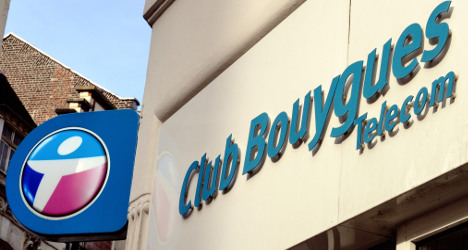Bouygues Telecom said its offer, which includes €10.5 billion in cash and a 46 percent stake in the new company, would involve no forced redundancies and would "revitalise" employment in France's telecoms sector.
Both Bouygues Telecom and SFR operate fixed-line, Internet and mobile networks.
Vivendi has been planning to split its business into two units, separating off SFR to focus on its media operations which include Universal Music.
Vivendi has also been looking to raise cash to lower its massive debt, unloading some other major assets such as video games maker Activision Blizzard.
"This is the best project for French consumers, French infrastructure, and the shareholders of Vivendi and Bouygues," said group finance director Philippe Marien.
If approved by anti-trust regulators, the new company would potentially create a phone carrier that would rival market leader Orange, but reduce the number of operators on the French market to three.
The arrival of upstart Free telecom as the fourth operator on the French mobile market in 2012 has led a fierce price war and a squeeze on their profits.
Orange's chief executive Stephane Richard has been an outspoken advocate of consolidation of mobile operators across Europe, but pledged Thursday to watch this deal closely.
"We will scrutinise the conditions of this proposed deal and measures to ensure balanced competition remains" if the market returns to three competitors.
Second suitor for SFR
However Bouygues is not be the only suitor for SFR.
Cable operator Numericable has not publicly disclosed its offer, but sources put it at 11 billion euros in cash, and giving Vivendi a 32 percent stake in the new company.
The Numericable offer values SFR at 15 billion euros pre-takeover, while Bouygues puts it at 14.5 billion.
Altice, the parent company of cable operator Numericable, has made no public confirmation of its bid, but SFR said late Wednesday it had received two offers to take majority control of the company.
Telecoms analyst Sylvain Chevallier at consulting firm BearingPoint said that while the financial terms were relatively similar, the two offers "would have an impact completely different on the telecoms market".
He said "Bouygues' project has more industrial logic and will return the market to three operators, which will possibly make them more inclined to invest, even if it will probably lead to higher prices and puts jobs at risk."
On the contrary, the Numericable offer would leave competition fierce in the mobile segment with four operators.
Investors appeared to favour the Bouygues offer. Shares in Bouygues jumped 4.85 percent in afternoon trading, while those of Numericable plunged 6.37 percent in a Paris market showing a light gain overall.
Vivendi's shares picked up 0.37 percent.
Shares in Orange, which said Thursday its net profit more-than doubled to 1.9 billion euros last year, also jumped, gaining 8.69 percent.



 Please whitelist us to continue reading.
Please whitelist us to continue reading.
Member comments